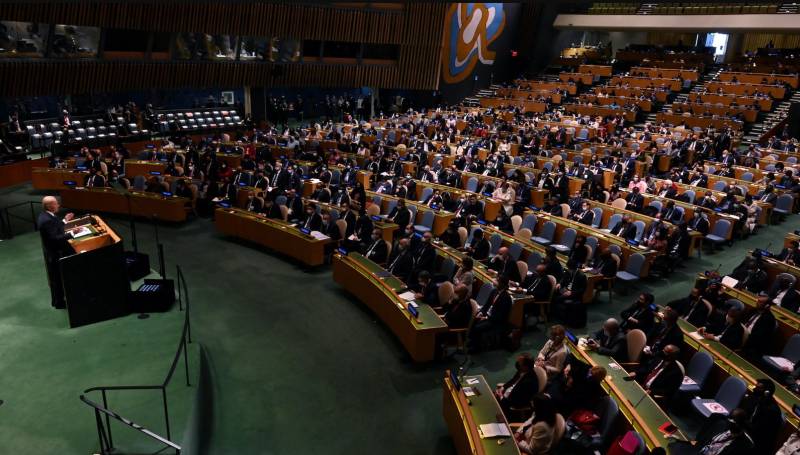The global treaties that live on without the US

Stay tuned with 24 News HD Android App

President Donald Trump has outraged environmental activists by announcing the United States will withdraw from the Paris climate accord for the second time.
The United States has a long history of failing to ratify international agreements, yet many continue to exert strong influence on global policy without the world's most powerful nation.
Convention on Biological Diversity
The United States is the only member of the United Nations not to have ratified the convention, though the country exercises influence with observer status.
The administration of president George H.W. Bush signed the treaty in 1993, but US officials criticised the text for failing to protect intellectual property among other things.
Convention on the Rights of the Child
The United States is the only country not to have ratified the Convention, which came into force in September 1990.
Washington signed the treaty in 1995 but has said ratification would undermine US sovereignty by giving the UN authority to determine the best interests of American children.
The UN children's agency UNICEF labels it the most widely ratified human rights treaty in history and has criticised the US stance.
Convention on the Rights of Persons with Disabilities
The convention, first adopted in 2006, has been ratified by the European Union and 191 countries.
US president Barack Obama signed the treaty in 2009 but it did not get through the Senate.
Some conservative congressmen argued that US legislation on the issue was already more advanced and ratifying the treaty would be a loss of US leadership.
Convention on the Elimination of All Forms of Discrimination against Women
Some 189 countries are party to the convention, which was signed by US president Jimmy Carter in 1980 but never ratified by Congress.
US critics cast doubt on its effectiveness by highlighting that countries widely perceived as having poor women's rights records had ratified the convention.
Rome Statute of the International Criminal Court
The Rome Statute, ratified by 125 countries, is the founding treaty of the International Criminal Court (ICC).
The ICC, which opened its doors in 2002, was set up to probe the gravest offences when countries cannot or will not prosecute suspects.
The United States has joined countries including Russia, Iran and Israel in refusing to ratify the treaty and rejecting the ICC's jurisdiction over its citizens.
Convention on the Law of the Sea
Approved in 1982 and ratified by the European Union and 169 countries, the convention established rules for the use of the oceans and their resources.
But it took effect without the participation of the United States, which baulked at the pressure it would exert on deep-sea mining operations.
The United States signed an international accord modifying the contentious part of the convention in 1994 but the Senate blocked its ratification.
Convention on Cluster Munitions
Washington did not sign the 2008 convention, which was ratified by 112 countries.
Cluster munitions, which explode in mid-air and scatter bomblets, have been widely used in the war between Ukraine and Russia.
